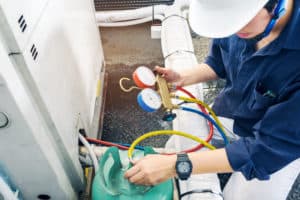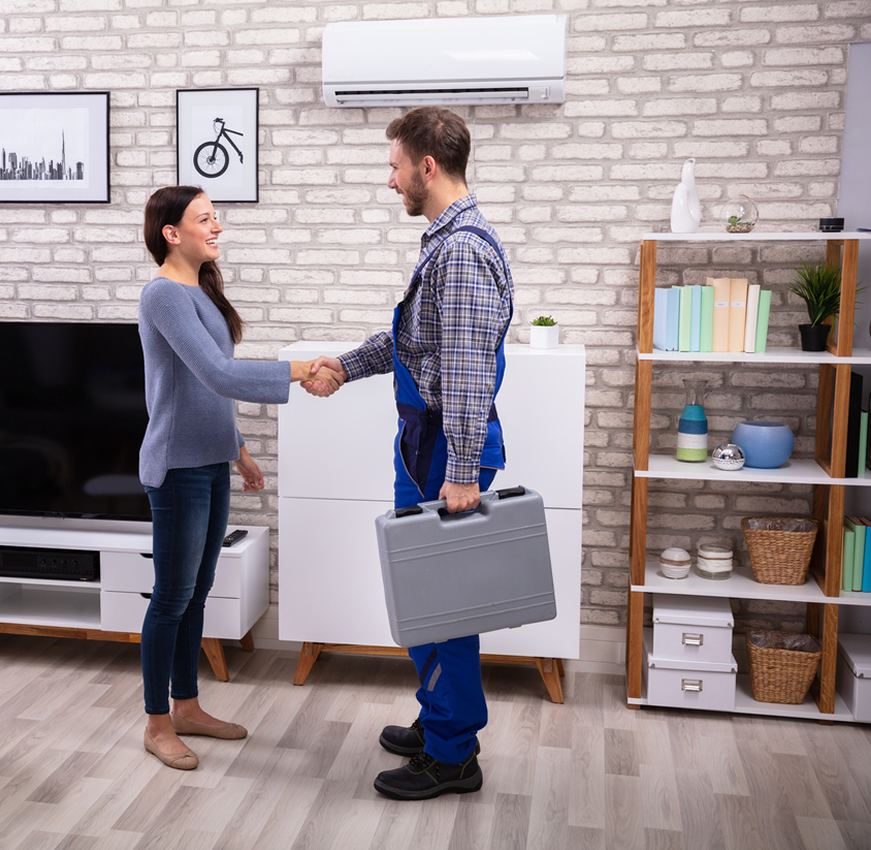Spring 2018 Newsletter
Good Air Conditioning Starts with Installation
Your air conditioning is a vital part of your home during the summer months. In order to get it to work at its best, you need proper planning at the installation stage: choosing a system that fits your home and can provide the most efficient air conditioning for your circumstances. Preparation with a trained professional is key.
If you’re in the market for a new air conditioner, you need to consider your options carefully. Obviously, the right company should be there to perform the installation, but it goes further than that. Air conditioners aren’t like other appliances where you can just measure the size, find some features you want and plug it in. Ideally, your air conditioner will last for many years, and in order to do that, it has to meet the needs of your home precisely.
The good news is that it’s fairly easy to do so. All you need is the right company as your guide and a few key tips on what to look for in an air conditioning system. That, coupled with a proper installation, will allow you to make the most of a considerable investment and ensure that you have plenty of quality air conditioning to keep cool this summer.
Sizing
Air conditioners have power loads that determine the amount of cooling they emit. That power level needs to be carefully evaluated to best match your home. Most people can guess that an underpowered system won’t be able to cool your home efficiently. What you may not suspect is that overpowered systems won’t either. By cooling the house too quickly, they trigger a condition known as short cycling, where the air conditioner turns on and off rapidly throughout the day.
AC units spend much more money turning on and off than they do running steadily. An overpowered system will end up costing you more and may require frequent repairs. Sizing means measuring your home’s square footage as well as evaluating things like insulation and sunlight exposure to arrive at the precise power level that’s right for your home.
Efficiency
On top of sizing, you also need to consider your system’s efficiency, measured by a SEER rating. SEER stands for Seasonal Energy Efficiency Ratio, and the scale is fairly simple to understand: the higher the rating, the more efficient the system. Once you’ve decided on the power levels for your new air conditioner, you can begin looking for the most efficient model in your price range.
Indoor Air Quality Options that Improve Your Household

Heaters and air conditioners aren’t the only things that help your household comfort levels. Indoor air quality products, from humidifiers to air filters and cleaners, can improve your breathing, remove the stale feeling from the air and balance humidity levels to optimize comfort in your home. The benefits are innumerable and can increase your home’s energy efficiency to boot.
We all tend to focus on temperature control when determining our household comfort levels, as well we should. Your air conditioner and heater are essential to keeping temperatures comfortable, and that’s fine. But they’re not the only systems that can help. Other problems with your indoor air quality – high amounts of dust, excessive humidity and the preponderance of germs or bacteria – can be best addressed by systems designed to cope with them. By installing them in your home, you can not only improve the quality of your indoor air but help lower your monthly heating and cooling bills to boot.
What Kinds of Indoor Air Quality Products Are Out There?
The list of indoor air quality products is lengthy, but it can include any or all of the following:
- Air Cleaners. Air filters are present in all heaters and air conditioners to strain contaminants out of the air. Electronic aircleaners take this a step further, using an ionization chamber to ionize particles and causing them to stick to a collection pan.
- UV Filters. UV filters are designed specifically to address germs and other bacteria, using a field of ultraviolet light to kill or sterilize them as they circulate through your ductwork.
- Humidifiers and Dehumidifiers. These products help address the problem of excessively dry or excessively moist air, both of which can cause considerable issues with your household comfort levels. In many cases, both devices are required: one to reduce humidity levels in the summer and one to increase them in the winter. In addition to their other benefits, they can often ease the strain on your heater or air conditioner, since humidity levels affect our perception of temperature as well.
- Energy Recovery Ventilators and Heat Recovery Ventilators. These devices are placed in your attic and they swap out the stale air in your home with fresh air from the outside, all without affecting the indoor temperature at all. In the process, it eases the strain on your heater and air conditioner a great deal.
Let’s get started on your air conditioning or air quality project. Call Russell’s Heating and Air Conditioning or fill out our online form and one of our specialists will get back to you right away. We appreciate the opportunity to earn a 5-star review!



